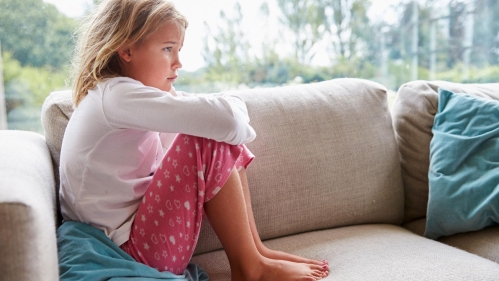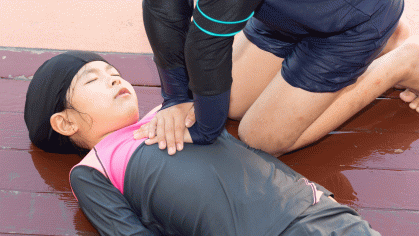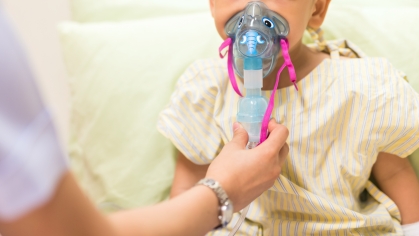An expert from Rutgers’ Traumatic Loss Coalitions for Youth discusses warning signs and how to address violence-related fears
When terrible events such as the recent school shooting at Robb Elementary School in Uvalde, Texas occur, children and adolescents can become emotionally unsettled.
News reports, conversations between adults overheard and law enforcement activities witnessed firsthand, can impact youngsters’ attitudes, thoughts and behavior to the point that professional intervention may be needed, according to Traumatic Loss Coalition (TLC), New Jersey’s primary youth suicide prevention program at Rutgers’ University Behavioral Health Care, which is funded by the New Jersey Department of Children and Families, Division of Family and Community Partnerships, Office of School Linked Services. TLC, supported by a coordinator in each county of New Jersey, is often called upon by local school districts to lend support or take the lead role in response to a crisis.
“Children of all ages are reacting as if they have experienced a traumatic event. Some would say they have,” said Maureen Brogan, TLC statewide coordinator and Diplomate, American Academy of Experts in Traumatic Stress.
Rutgers Today spoke with Brogan about how parents and educators can help children maintain or regain their sense of safety and security, particularly following violent tragedies such as those that have occurred recently.
How should parents react to violence being reported by the news media as their children are watching?
Brogan: Breaking news could raise the level of anxiety and concern unnecessarily. What is important to remember at all times is that children look to adults for their reactions. They are very attuned. If we abruptly say “turn off the news,” they may think things are very bad. Instead, we should talk about the news with them. When breaking news is being reported, some details are often sketchy and some reporting may not be accurate. We should explain that and try to give some perspective. It is also an opportunity to teach children about reliable news sources and help them separate what is fact from what is opinion, since it can be difficult for them to distinguish between the two.
For older youngsters, it often helps if we guide their thinking. If parents and educators regularly discuss current events, then, when a tragic event occurs, they will be more accustomed to talking about it and will understand it better.
How should we explain why violence is occurring?
Brogan: Don’t pretend to understand why violence is occurring. It’s okay to say, “Honestly I do not know why this is happening now.” It’s a time when you can explain that most people do not act that way and to try to make children understand the good things people do and how a community comes together to help one another during a tragedy and its aftermath.
What are some of the more recognizable warning signs from a child emotionally impacted by watching news reports or witnessing violence?
Brogan: In younger children, we may see some physical symptoms and signs of raised anxiety, such as stomach aches, changes in eating habits, nightmares. When children have trouble focusing, that could be a red flag that their thinking is going somewhere other than where it should be at the time. They may experience separation anxiety and want their parents not to leave them to go to work. Some become sad and withdrawn, some may refuse to attend school and others worry excessively about someone they love becoming a victim. While a certain level of fear or anxiety is normal, if reactions are particularly strong and interfering with their normal lives, you may want to explore seeking professional help.
If events occur while children are at school, who can they rely on to discuss what is occurring?
Brogan: You should encourage children to develop a few “trusted adults,” such as an extended family member, a coach, a maintenance worker, a teacher, a security guard – people whom they trust and who are responsible individuals. Many school systems have “trusted adults” programs so that children can talk to caring and trusted adults when troubling events occur. When children return home, it will be helpful to talk about what they discussed with their trusted adults. This creates a safety net to help in the aftermath of a traumatic event.
The Traumatic Loss Coalition encourages parents and educators to view additional helpful information provided by the National Child Traumatic Stress Network.




